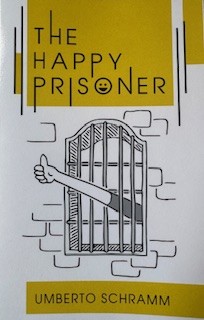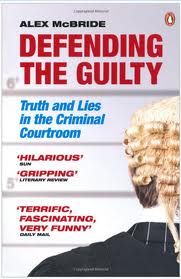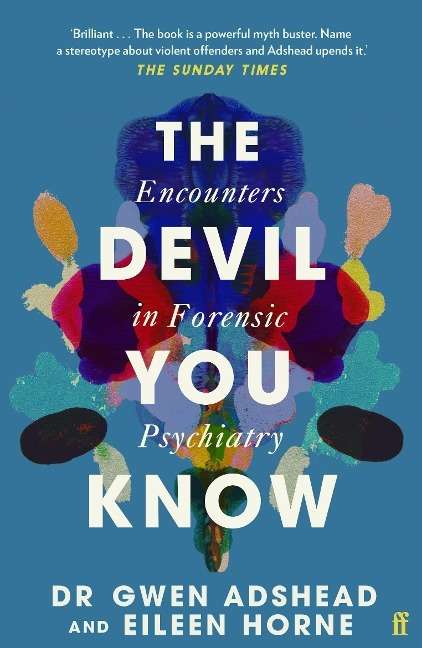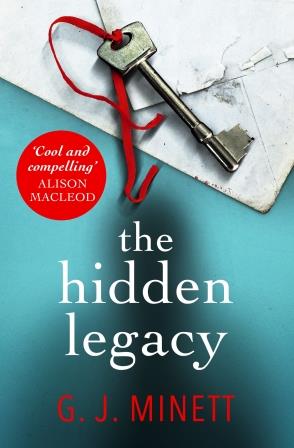
‘Sending more people to prison for longer does not reduce crime’.
This conviction, and his further belief that, ‘Rehabilitation is possible’, is at the absolute heart of Umberto Schramm’s argument in this short book, which is partly a prison diary and partly an argument for significant change, not just in the judicial system, but in our whole concept of prison.
Schramm embodies the kind of criminal The Daily Mail love to hate. He is a foreigner who, after being convicted of a very serious crime, has cost the taxpayer precious money to keep him locked away, then been released under licence after serving a surprisingly short sentence. He is also a journalist, a taxpayer, a human being, someone’s son, someone’s friend, though I’m not sure any of that matters to the people who commented on Surrey Police’s Facebook page regarding the length of Schramm’s prison sentence: the unifying sentiment was disgust and anger at the perceived leniency of the sentence. So, what does Schramm have to say about prisons, and why should we listen?
What’s it about?
Schramm’s experiences of four different prisons and his subsequent suggestions for improvements to the justice system, to prisons and to society. As a foreign national, Schramm spent parts of his sentence in a ‘local’ prison, a ‘training’ prison, an ‘open’ prison and a prison specifically for holding foreign nationals. For each, he outlines his experiences of the routine, his cellmates and the impact on his mental health.
In essence, his experiences can be boiled down to a consistent frustration with the missed opportunity: deprived of exercise, purpose, meaningful mental health support and even personal space, prisoners rely on drugs and are prone to aggression. Instead of gaining skills that could support their return to society, they are forced to spend money on supplementary food, as the prison service only allows £2.70 per prisoner per day, thereby reducing the funds available to support their return to society. (By contrast, it costs me £2.70 to order my junior school child one school lunch.)
Alongside telling us what doesn’t work – heaping punishment on top of punishment, depriving prisoners of sufficient nourishment and locking them in their overcrowded cells for 23 hours of every day – Schramm tells us what he thinks could work, outlining a range of ideas supported by his own experiences and by organisations such as the Prison Reform Trust.
What’s it like?
Challenging but logical. I admit to sharing the instinctive revulsion of the masses here: the very notion of a happy prisoner seems inappropriate, even ludicrous. However, my rational brain completely accepts the fundamental premise of this book. Depriving someone of their liberty IS a significant punishment, in and of itself, and punishment without rehabilitation invites further re-offending.
I can see this on a very simplistic, micro-level in my own household. When I punish my son, he becomes more dysregulated and more prone to engage in the aggressive behaviours that prompted the punishment. When I support him to make amends, check in with him to establish why he is behaving in a way I judge to be harmful, and redirect his attention, he becomes calmer and our household can run more smoothly. He begins to learn that he can get his needs met without causing harm. (This does not mean he is allowed to behave aggressively with impunity; for the safety of himself or others, I put in place and enforce limits, but there is always a balance to be considered between education and correction.)
Most of Schramm’s suggestions are actually not that radical; providing prisoners (and prison officers!) with a clear purpose, feeding them an adequate diet, giving them opportunities to exercise and recruiting sufficient prison staff to manage prison populations effectively shouldn’t be controversial. As ever, a lot of the difficulties are political; there must be an appetite for prison reform, as opposed to simply a public demand for punishment.
Final thoughts
I almost didn’t read this book. It’s difficult for me to accept Schramm’s characterisation of his crime as a ‘mistake’, considering the consequences. In fact, I’m not sure I can use that word to describe it. And yet. This is exactly what Schramm is asking us to do: to accept that most prisoners are not evil or inhuman, but people who have made bad choices of varying degrees and who still deserve to be treated as human beings; and to further understand that the cost of rehabilitating these human beings will be less both financially and in terms of future offending, if we can only do it properly.
The book itself is convincing, using a mixture of personal anecdote and factual data to support Schramm’s position. If you can separate emotional instinct from intellectual reason, you may just find you agree with him.


